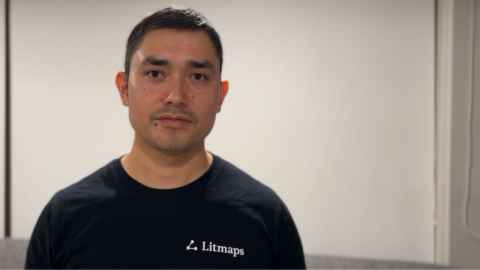Axton Pitt
If a researcher’s biggest thrill is putting their name to an original idea, the bane of their life is doing the literature review that supports the new theory. Enter Litmaps.

The brainchild of Hamiltonian Axton Pitt and Kyle Webster and Digl Dixon of Nelson, Litmaps automates the process of sifting through hundreds of millions of published academic papers and visually displays the connections between relevant results.
“Hearing a PhD candidate say ‘Litmaps saved me months’ never gets old,” says Axton, who with Kyle and Digl created the software to overcome their own impatience with the literature review process.
Since they developed the tool and started a company in Wellington to support and market it in 2016, Litmaps has made its way into the hands of millions of students in more than 180 countries.
It has elicited enthusiastic comments on Hacker News, a site that serves up content on computer science and entrepreneurship. In a post on the site user ‘cableclasper’ calls Litmaps “brilliant work” and says “this has a great edge over Google Scholar”.
For Axton, getting Litmaps on to Hacker News’s front page is a peak achievement, up there with receiving a scholarship to attend Apple’s Worldwide Developers Conference in San Francisco and having the tool integrated with leading pre-print server arXiv.org.
But those were early milestones. In May this year Litmaps bought ResearchRabbit, a US citation-based reference tool that reviewer Ilya Shabanov of website effortlessacademic.com mentions in the same breath as Litmaps.
Axton says bringing the two together takes Litmaps closer to becoming the world’s most widely adopted tool for literature discovery. More than that, Litmaps is being deployed by professionals looking for a “second opinion”, such as Spanish orthopaedic trauma surgeon Dr Josep Muñoz Vives, cited in a Litmaps blog, who uses it to stay up to date with research in his field.
Axton points to a number of influences that led to his involvement in creating Litmaps. His parents “modelled grit and a ‘figure-it-out’ mindset” that still guides him.
He credits early adopters of the tool with pushing for features that “would never have been built so quickly without their honesty”. And he tips his hat at Litmaps’ co-founders and investors – “especially those who challenged me to think bigger than ‘just’ a citation tool and to see Litmaps’ potential in R&D and patent search”.
Proving, perhaps, that necessity remains the mother of invention Axton says his time immersed in the University of Auckland’s research-intensive culture – he was doing a Bachelor of Science – gave him “hands-on exposure to literature databases, reference managers and the frustrations they create”.
As other entrepreneurs also recount, Axton says it can be a big challenge going from being a technical founder to handling “all the other bits” of a business.
“This has been hard but super-rewarding and I’ve been helped by the great team around me.”
The flip side of being a comparative business newbie is the advantage of youth.
“I have the stamina for the grind, yet enough experience to know where to apply that energy.”
Where he’s ended up isn’t exactly what he’d imagined while studying.
“I thought I’d stay on an academic track or maybe join a Big Tech R&D lab. Instead I became a founder building tools for academics. The pivot felt risky, but it aligned perfectly with my personal mission to accelerate scientific breakthroughs.
“When we reached 1000 paying customers I stopped and thought, ‘This isn’t a side project anymore – real researchers depend on us.’ It was both exhilarating and terrifying.”
Axton’s ongoing aim is to put world-class discovery tools into the hands of every researcher globally, while building a sustainable, people-first culture at Litmaps’ Wellington home.